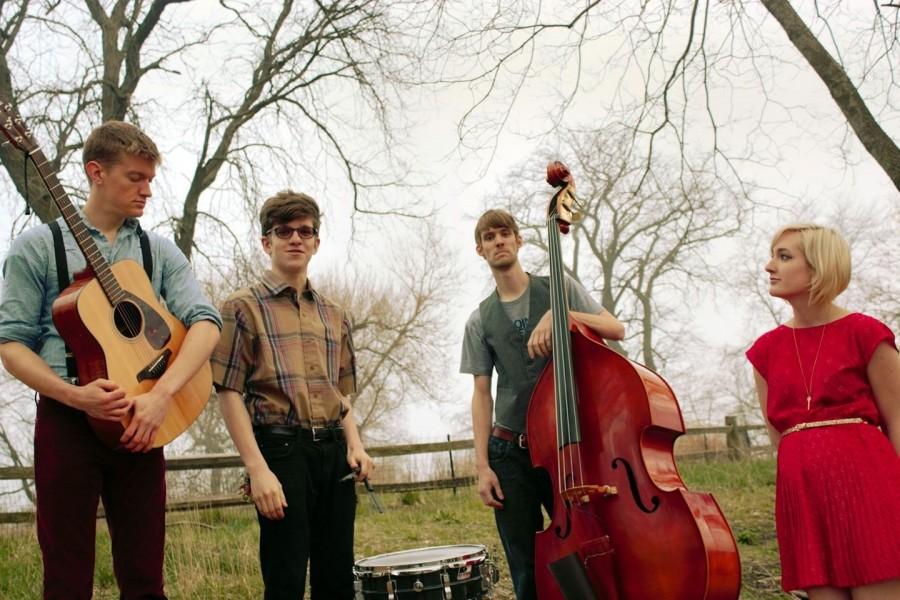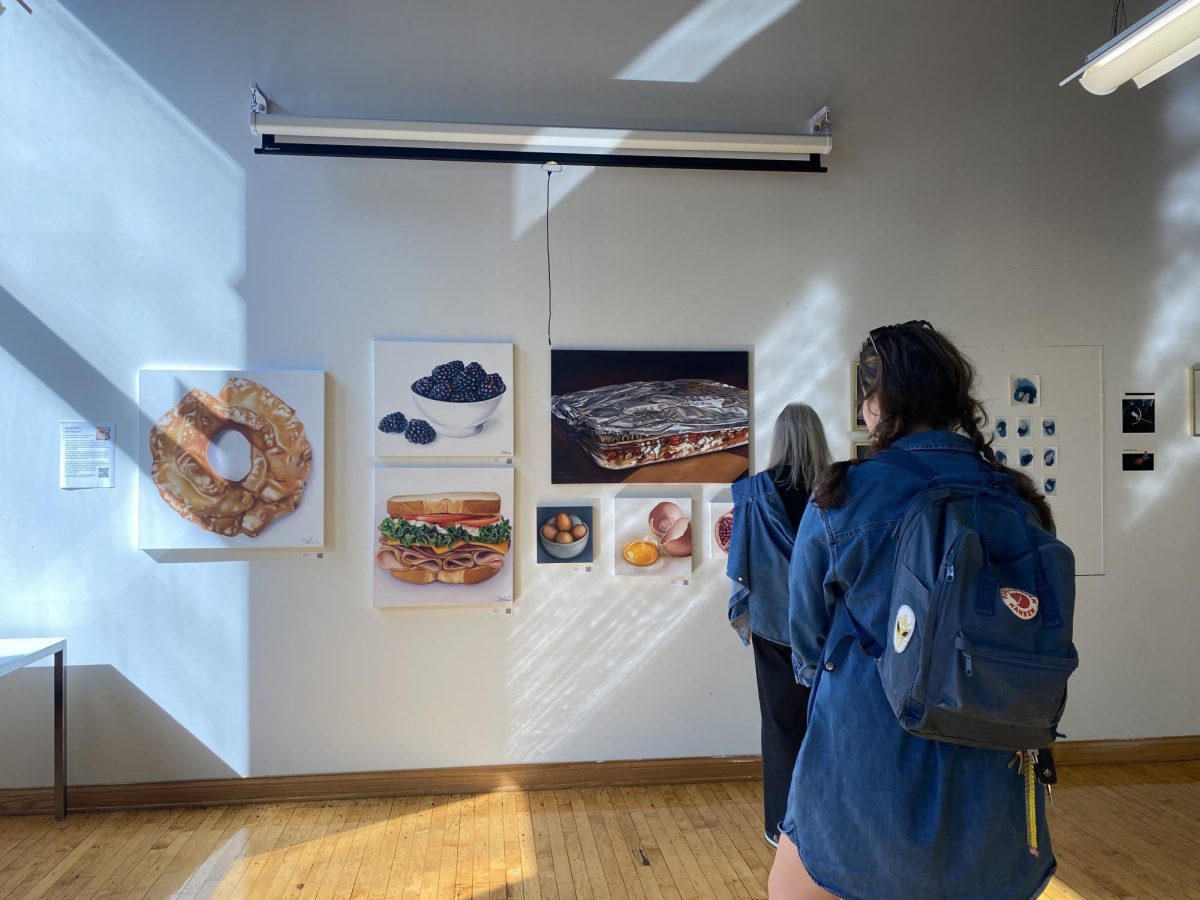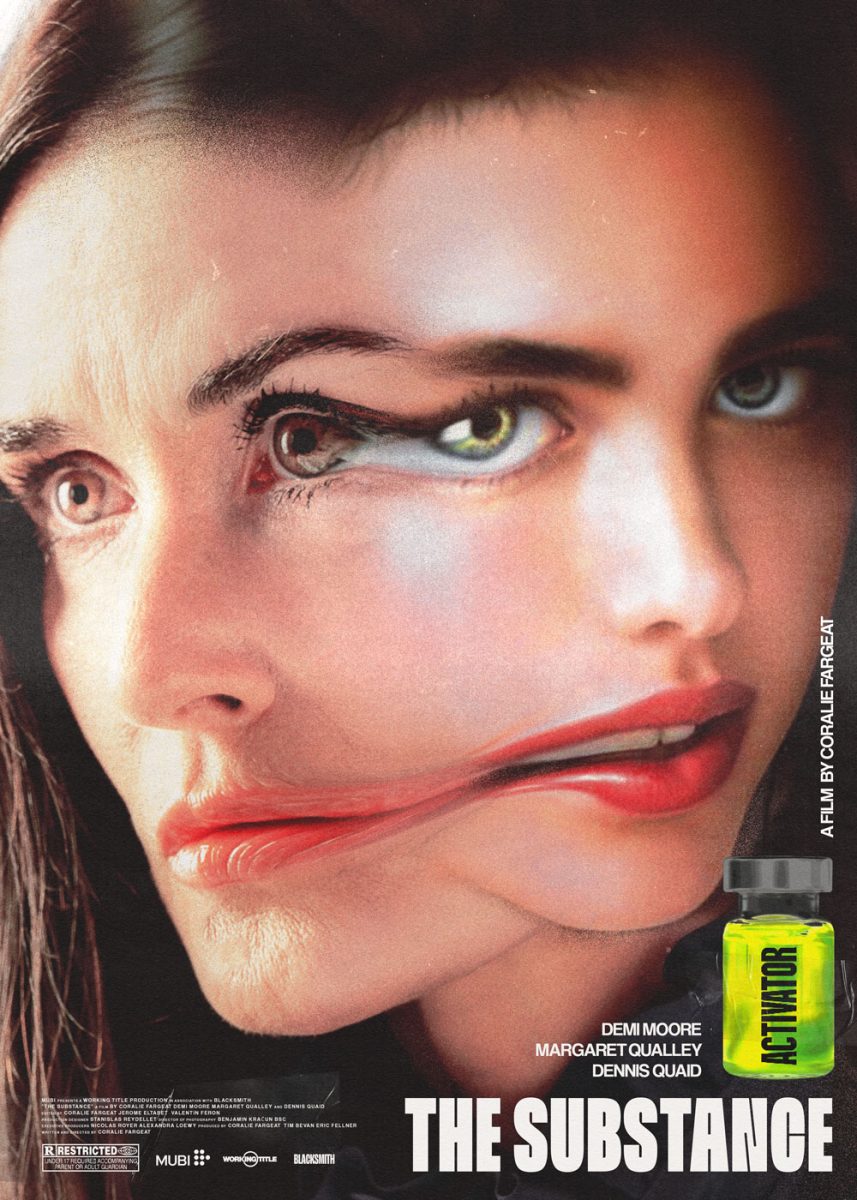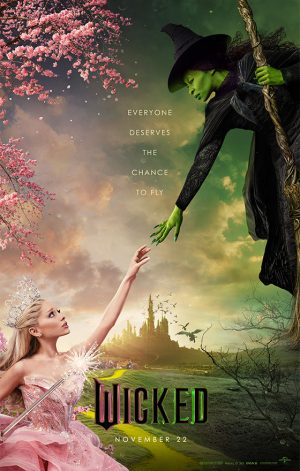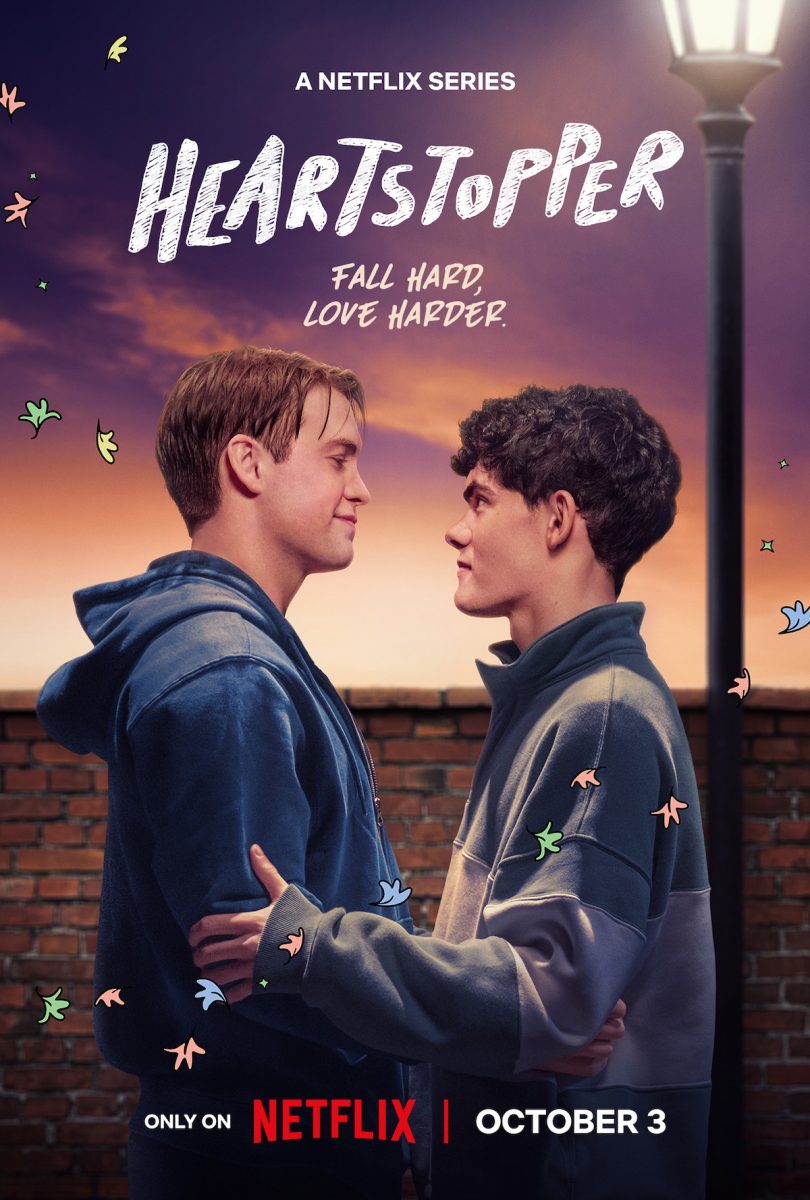By Matthew Wettig
Walking into the Abbey Pub on a Friday night, Nick Cameron’s age goes unnoticed. He is not there to sneak an illegal drink, he is just getting down to business.
Cameron, Div. 475, is there to drum for his band, the Fleeting Suns, a folk-rock quartet. Besides playing for the Fleeting Suns, he plays in the Lane Jazz band, the school’s Jazz Combo, and writes his own music on the side.
In addition to the drums, which he has been playing since he was 11, Cameron also plays the piano, and has recently taken up the bass.
Cameron first started playing piano at age 7, which he did not enjoy.
“I kept up with the lessons, but never really practiced when I was supposed to,” Cameron said. “It was pushed on me like a chore by my dad. I liked music and I liked playing but I only knew how to play what other people had taught me.”
Despite this, Cameron’s father has been in various bands throughout his career. His first band Big Twist and the Mellow Fellows received national acclaim for their 1983 blues rock album Playing for Keeps. In the 1990s he played for Sonia Dada, a band based in Chicago, that for some reason had a large following in Australia. Their single “You Don’t Treat Me No Good” even reached #1 on the Australian ARIA charts, the equivalent of the US Billboard charts.
“At home we have a poster of the top 100 singles. It shows Sonia Dada at the one, two, and four spots. Three was Guns n Roses and I think five was Nirvana,” Cameron said.
He believes his father’s past and his upbringing have greatly influenced where Cameron is today.
Cameron has been playing with the Fleeting Suns for a year. Before that he played with The Machines, which later became Miss Demeanor. The Fleeting Suns play one or two shows a month.
“Recently, a really weird band opened for us, Winnie Paige and the Dirt Band. Let me put it this way, only way they could corner the market more is if they doubled as male strippers at bachelorette parties. The first song they played was called ‘sex party’,” Cameron said laughing.
Cameron also plays an integral role in Lane’s Jazz Combo, acting as the unofficial assistant director. He arranges songs if other members of the band do not like how it was originally written. Cameron also directs the band when the instructor, Mr. Hudson, is absent. They have played multiple shows, from playing downtown for the CPS Board of Education to the halls of Lane before first period.
Mr. Hudson teaches Cameron’s Sound Engineering class and acts as the coordinator for the Jazz Combo. Hudson has dubbed Cameron “the arranger.”
“There will be a song the group wants to play. From there we start working on the song as a whole,” Hudon said. “Nick’s always there tweaking songs, making very creative little flourishes. He gives Jazz Combo our signature sound rather than being a generic version of an old jazz standard. Nick has a great way of making songs sound original.”
Recently Lane’s Sound Engineering class released a song of Cameron’s titled “Good Vibes.” The 2:02 minute synthesizer track took 5-6 class sessions to complete, and a lot of patience. Cameron recorded the track entirely using Pro Tools software, which he describes as easier than doing live recording. When recording music live, if one person is not completely happy with their part, the whole song must be rerecorded. Hudson believes that Cameron has musical “context to draw off of” that make him a valuable asset in sound engineering.
His passion for music took off in seventh of eighth grade when he quit taking lessons.
“I just started doing my own thing; playing what I wanted, listening to what I wanted to, and learning the music I was exposing myself to,” Cameron said.
Music runs in the family for Cameron, since his father is a professional pianist. Cameron describes his dad as being more of a “freelance pianist,” where people will come to him for his service.
When Cameron records his music at home, it is more stripped down. He has a home recording studio, but currently records his music on his phone’s microphone.
Though Cameron would love to pursue a career in music, he does not see it as the wisest choice. He believes if he studied music theory in college he would end up as a music teacher, since “that’s the only occupation remotely easy to get right out of college.”
“I don’t really think I’d be satisfied doing that, sacrificing a creative outlet out of necessity,” he said. “But if I could snap my fingers and become a rock star, I’d do it in an instant.”

